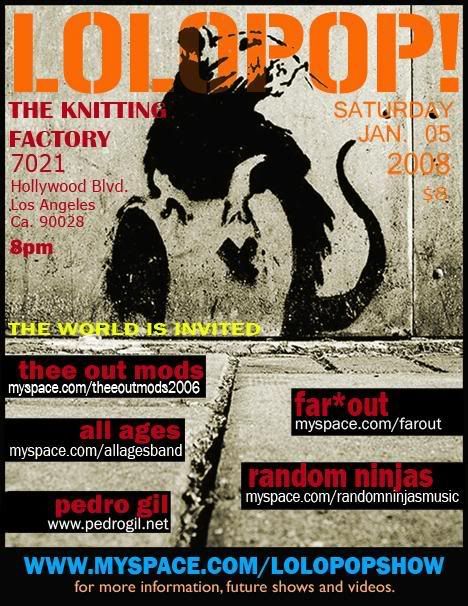While reading my Sunday Los Angeles Times I've discovered the recent passing of Lydia Mendoza. Thoughts and prayers to her family, friends and fans.
Here is a small part of the write-up from today's Times:
Lydia Mendoza, 91; Singer was in the vanguard of Tejano music
By Valerie J. Nelson, Los Angeles Times Staff Writer
December 30, 2007
Lydia Mendoza, an early star of Mexican American music whose passionate, despairing songs about working-class life on both sides of the border made her a trailblazer for the Tejano genre, has died. She was 91.
Mendoza, whose singing career spanned more than 60 years, died Dec. 20 of natural causes in San Antonio, Texas, according to media reports.
Texas Monthly magazine called her the "greatest Mexican American female performer ever to grace a stage" in a 1999 story that named her "the voice of the century" in Texas.
Lupe Saenz, president of the South Texas Conjunto Assn., told The Times that Mendoza was a "pioneer of our musical heritage."
"She was a rebel, in that she did what no other woman artist singer had done before her; that is, she sang about the 'machismo' culture in a way that set the course for many women today," Saenz said in an e-mail.
The words for her first, and most enduring, hit came from her girlhood collection of gum wrappers that contained song lyrics. She put the words from one wrapper to a tune she had heard in concert in Mexico and first performed "
Mal Hombre" (Evil Man), a song about false-hearted lovers, when she was 10.
After Mendoza recorded the song -- a tango -- in 1934, it became a major hit throughout the Spanish-speaking community and launched her career.
Accompanied by her signature 12-string guitar, Mendoza often sang about hardship and rejection in a powerfully sincere style that reflected the music developing along the U.S.-Mexican border. Her trilling voice earned her the nickname "
La Alondra de la Frontera," or Lark of the Border.
In 1935, she married shoemaker Juan Alvarado and continued to perform in an era when wives usually gave up their careers. By 1940, Mendoza had recorded more than 200 songs in a wide variety of musical styles that included boleros, rancheras and cumbias. She wrote many of them herself.
"People say I'm the mother of Tejano music," Mendoza told the Chicago Tribune in 1996, "but I don't think I even heard the word, knew what it was, until many years after I started. . . . People watched what I was doing -- singing and playing guitar -- and that inspired them."
please check out the complete obituary here.-AnOldieButAGoodie
































